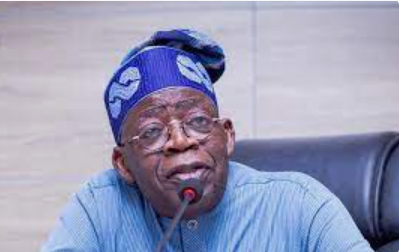
THESE are tough times in Nigeria with the economy on its knees and wobbling to almost a comatose state, and a currency whose value is almost the same as the paper that it is printed on. The managers of the economy, led by President Bola Tinubu, are running helter-skelter to rescue the situation and prevent further social upheaval and are coming up with a cocktail of solutions. At best, some of them are knee-jerk.
One such measure is the fresh imposition of a mandatory annual levy for organisations employing expatriate workers. It requires them to pay $15,000 for a director and $10,000 for other employees from the previous $2,000 a year to obtain a residency permit for each international employee. According to the Federal Government, the move is meant to encourage international companies to employ more local workers and improve revenue.
Though the President warned that the levy should not be used to frustrate potential investors, feelers are that the exact opposite may be achieved. The levy, which will be enforced by the Nigeria Immigration Service, applies to employees who work for at least 183 days in a year within Nigeria. The EEL imposes jail terms of up to three and five years for defaulting individuals and corporate organisations that do not comply, including failure to provide accurate information.
As it is denominated in dollar, the EEL looks attractive. But this can only bring a short-term gain to an economy battling to reduce its multiple taxation albatross.
As envisaged, key stakeholders have firmly counselled against the tax. The Nigeria Employers’ Consultative Association warned that it would deter investment in the country, adding that there would be a need for certain regulations to be put in place before such a tax could be imposed. NECA said the initiative, supposedly aimed at enhancing skills transfer in Nigeria, would frustrate the Federal Government’s ongoing fiscal and monetary reforms if implemented.
Undoubtedly, the levy will serve as a disincentive to Foreign Direct Investment at a time that the country is actively seeking FDI. FDI into Nigeria plunged to -$198 million in 2022 from $3.31 billion in 2021.
The initiative of the Ministry of Interior appears not well thought out as it is coming at a time when businesses are shutting down and leaving the country in droves, while those that manage to remain are battling with massive losses, which may increase the level of unemployment with dire socio-economic consequences.
We align with the position of NECA that “the levy, if implemented, will not only distort, and frustrate the ongoing efforts at clear reform of the fiscal and monetary space, but also contradict and render ineffective the President’s ongoing quest for Foreign Direct Investment. Furthermore, a reciprocal implementation of the same policy by other countries will have dire consequences on the careers and progress of Nigerians who are expatriates in other nations.”
Instead of imposing additional levies on expatriates, the government should strengthen existing regulatory institutions responsible for managing expatriate employment, improve the collection of existing taxes, reduce wastage, and trim the cost of governance.
The four-week timeline for the implementation is too short. For such a major policy shift, companies need to be given a minimum of one year. It is only fair to do so, as this would be very disruptive for their businesses, plans, and projections.
Unfortunately, Diaspora remittances to the country are already dwindling with the World Bank estimating that Diaspora remittances to Nigeria in 2023 totalled $20 billion, slightly lower than the $20.13 billion recorded in 2022 and the over $21 billion before that. If other countries reciprocate what Nigeria is trying to do, remittances will suffer as Nigerian workers abroad will not be able to send money home like they used to do.
Therefore, Tinubu must reverse the counterproductive EEL.





